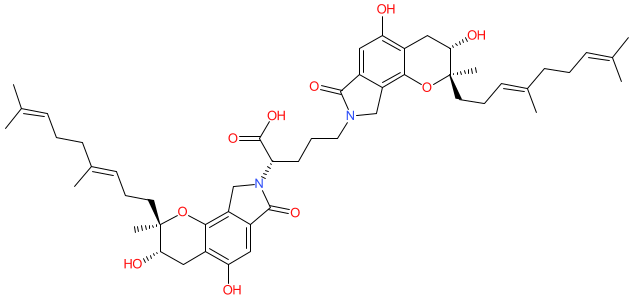|
Synonyms: Stachybotrys microspora triprenyl phenol 7 | BIIB131 | orniplabin | SMTP7 | TMS-007
Compound class:
Synthetic organic
Comment: SMTP-7 is a natural triprenyl phenol that's produced by Stachybotrys microspora (a fungus) [2]. It is a complex molecule with 5 chiral centers whose absolute stereochemical configuration has been determined using microcrystal electron diffraction (MicroED) [6]. SMTP-7 produces thrombolytic [4], anti-inflammatory, and antioxidant effects. It is being considered as a clinical anti-thrombotic agent for use in stroke patients [5]. The compound has activity as a plasminogen modulator and soluble epoxide hydrolase inhibitor that may offer a novel therapeutic intervention for cardiometabolic diseases [1].
|
|
|||||||||||||||||||||||||||||||||||
| No information available. |
Summary of Clinical Use  |
| SMTP-7 (BIIB131, TMS-007) is being evaluated as a novel thrombolytic agent for the treatment of acute ischemic stroke. Results from a first-in-human study in healthy volunteers were published in late 2022 [3]. SMTP-7 was well tolerated and no serious adverse events were reported. |







